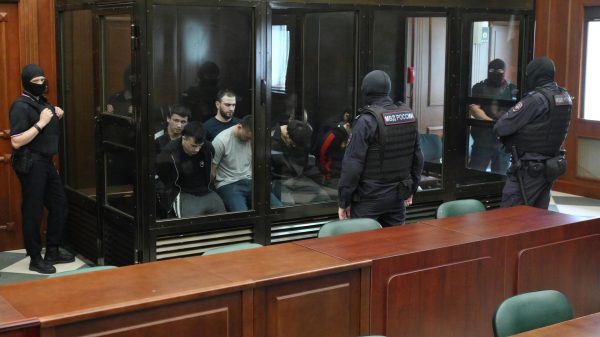The US army has fired or suspended 14 officers and enlisted soldiers at its Fort Hood, Texas, base and ordered policy changes to address chronic failures of leadership that contributed to a widespread pattern of violence, including murder, sexual assault and harassment.
In a sweeping condemnation of Fort Hood’s command hierarchy, the army secretary, Ryan McCarthy, fired three top commanders and suspended two others pending a further investigation.
He also ordered a separate investigation into staffing and procedures at the base’s Criminal Investigation Command unit, which is responsible for investigating crimes on Fort Hood.
The actions come after a year that saw at least 25 soldiers assigned to Fort Hood die due to suicide, homicide or accidents, including the bludgeoning death of Vanessa Guillen. The young soldier was missing for about two months before her remains were found.
On Wednesday a subcommittee of the House of Representatives armed services committee is holding a hearing with testimony from the panel of investigators that examined the deaths at Fort Hood and the culture that prevailed during a spate of crimes and suicides there, as part of a congressional investigation.
Speaking to reporters at the Pentagon, McCarthy said based on an independent panel’s review, he concluded that the issues at Fort Hood, including major flaws in the response to sexual assault and harassment, “are directly related to leadership failures”.
He said he was gravely disappointed in the commanders there, adding, “without leadership, systems don’t matter”.
Gen James McConville, the chief of staff of the army, told reporters that he spoke to Guillen’s mother on Tuesday morning and told her, “We are holding leaders accountable, and we will fix this.”
Gloria Guillen, Vanessa’s mother, said during an emotional press conference in Houston that she spoke with McCarthy and told him the administrative actions were a step in the right direction, but she wanted to see those who had failed her daughter serve jail time.
“Nothing is going to take away the pain I feel as her mother all day and all night,” Guillen said in Spanish through tears.
Natalie Khawam, the Guillens’ attorney, said Criminal Investigation Command (CID) officers were among those fired or suspended on Tuesday. The panel found that Fort Hood was used as a training ground for new CID officers, and there was a lot of turnover and many of the officers were inexperienced and over-assigned.
‘We are Vanessa Guillén’: killing puts sexual violence in US military in focus
Read more
McCarthy also ordered a new army policy that changes how commanders deal with missing soldiers. The panel found there were no detailed procedures for what commanders of small units should do if a soldier is missing, but not necessarily awol, or absent without leave.
The new policy requires leaders to list service members as absent-unknown for up to 48 hours and to do everything they can to locate the soldier to determine if the absence is voluntary before declaring anyone absent without leave.
The firings include Army Maj Gen Scott Efflandt, who was left in charge of the base earlier this year when Guillen was killed, as well as Col Ralph Overland, the third cavalry regiment commander and his CSgt Maj Bradley Knapp.
Among those suspended were Maj Gen Jeffery Broadwater, the first cavalry division commander, and his CSgt Maj Thomas C Kenny.
The administrative actions are expected to trigger investigations that could lead to a wide range of punishments.
Army leaders and members of the independent panel acknowledged that the death of Guillen, 20, earlier this year was a catalyst for a deeper look into what have been longstanding crime and other problems at the base.
According to investigators, Guillen was bludgeoned to death at Fort Hood by Specialist Aaron Robinson, who killed himself on 1 July as police were trying to take him into custody.
Her family has said Robinson sexually harassed her and she was too frightened of intimidation to report the abuse, though the army has said there is no evidence supporting that claim.
Also in July, the body of Pte Mejhor Morta was found near a reservoir by Fort Hood. And in June, officials discovered the remains of another missing soldier, Gregory Morales, about 10 miles from that lake.
The five-member panel spent three weeks at Fort Hood .
They said female soldiers told them they were afraid of retaliation for complaints, including fears they would be moved to other jobs, their confidentiality would be compromised and their careers would be derailed.
They also complained about long delays in investigations, and many said they did not report incidents of sexual assault or harassment due to lack of confidence in the program.
Panel member Carrie Ricci, a retired member of the army’s Judge Advocate General’s Corp who served for three years at Fort Hood, had a message to the female soldiers there. “I want them to know we believe you,” she said.























































Свежие комментарии